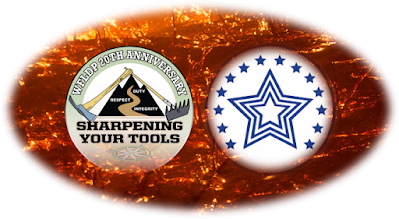Leading the
Learning
By Kelly Woods –
Director, Wildland Fire Lessons Learned Center
Most of us have read Leading
in the Wildland Fire Service. It’s the yellow book you receive whenever
you attend a wildland fire leadership course. If you have not read it cover to
cover, you should – remember leaders are readers. We all undoubtedly are familiar
with the contents of this book even if we have not read it numerous times.
Within its pages, the core values of our business – duty, respect, and
integrity are defined. The principles which guide leaders in support of these
values are revealed. Together these words provide a leadership framework for wildland
firefighters in all phases of their service. Essentially, this book is where we find out
what it means to be a leader in wildland fire.
Did you know there is a book like this for learning? Guess what it’s called…Learning in the Wildland Fire Service.
Have you read it? Again, if you haven’t, you should.
Learning
in the Wildland Fire Service is designed to be a companion
effort to Leading
in the Wildland Fire Service. While the first of these two
foundational publications outlines the core values of leading in the wildland
fire service, the second describes why and how continual learning is essential to
fully realize the core values of being a leader in the wildland fire service.
As we learned in our trusty yellow book, one of the
principles of duty is to “be proficient” in our jobs. Another is to “develop
subordinates for the future”. How can you do that without actively promoting
learning in your work environment?
One of the principles of integrity is to “seek improvement.”
How can you do that if you don’t actively approach unintended outcomes with a
bias for learning?
Learning is an action. Each one of us is responsible to engage
actively and deliberately in our individual and organizational learning. Learning
in the Wildland Fire Service serves as a guide for this process.
Specifically noted in the book:
“This publication
discusses and analyzes the fundamental learning concepts specific to the
wildland fire service. It outlines the pillars, tenets, and framework that
guide the wildland fire service across a broad range of missions.”
Leaders have the
responsibility to create an atmosphere in which learning is at the center of
the mission. Inquiry, opportunity, and dialogue as outlined in Learning in the Wildland Fire Service should be part of the daily routine
resulting in an environment where we can effectively apply the lessons learned
from each shift to the next assignment.
Learning is not always easy. In fact, sometimes it is hard. We know that the wildland fire service has specific cultural values and some unique challenges that influence how we go about learning. This publication addresses all of that. The learning that follows is up to you.

No comments:
Post a Comment